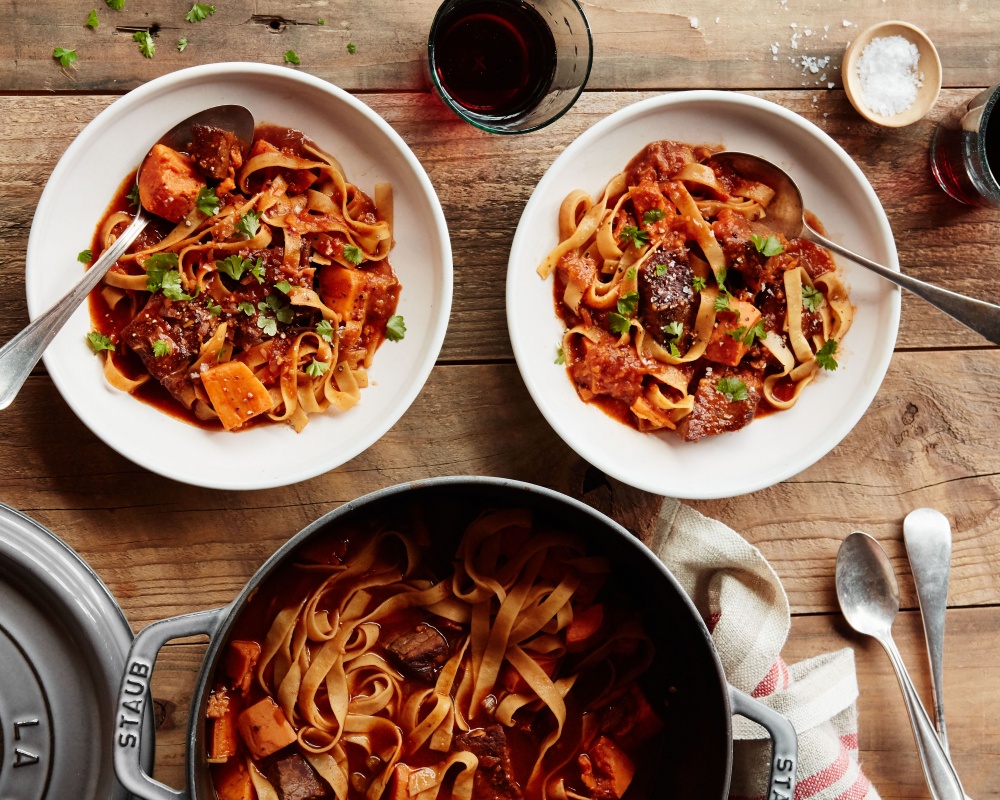Beef Paprikash with Sweet Potatoes and Noodles

- 1 lb [455 g] sweet potatoes
- 1 lb [455 g] top sirloin or flat iron steak
- Kosher salt and freshly ground black pepper
- 1 onion
- 1 celery stalk
- 1 garlic clove
- 1 Tbsp olive oil
- 2 Tbsp tomato paste
- 1 Tbsp paprika
- 4 cups [960 ml] beef broth
- 4 oz [115 g] egg noodles
- 2 Tbsp red wine vinegar
- 1/4 cup [60 g] sour cream
- 2 Tbsp chopped fresh parsley
1. On a large cutting board, peel the potatoes and dice into 1-in [2.5-cm] pieces; transfer them to a medium bowl. Cut the steak into bite-size pieces, transfer it to a medium bowl, and sprinkle with 1/2 tsp salt and a few grinds of pepper. Flip the board over to the clean side and chop the onion, thinly slice the celery, and mince the garlic into a pile.
2. Heat a 4-qt [3.8-L] saucepan over medium-high heat and add the olive oil. When the oil shimmers, add half the meat and brown it, without moving it, for about 3 minutes. Stir in the remaining meat, the onion, celery, garlic, tomato paste, paprika, and 1/2 tsp salt and continue to cook until the vegetables begin to soften, 2 to 3 minutes.
3. Add the broth and potatoes and stir up all the browned bits on the bottom of the pan. Bring to a boil, reduce the heat to low, and simmer, uncovered, until the potatoes are almost tender, about 10 minutes. Raise the heat to medium, stir in the noodles, and cook until tender, about 5 minutes. Careful not to let it bubble too fast. You don’t want the liquid to reduce too much.
3. Stir in the vinegar and taste for seasoning, adding salt and pepper if it needs it.
4. Ladle the hot stew into heated bowls, add a dollop of sour cream, and sprinkle with the parsley. Serve.
It’s that easy: If this stew were cooked slowly, the traditional way, you could use a cheaper, tougher cut of meat. The more tender top sirloin or flat iron steak is used here because it doesn’t need a long simmer to tenderize, allowing you to get dinner on the table much sooner.
Extract from: One Pan, Whole Family by Carla Snyder (Chronicle Books, £18.99) Photographs by Colin Price





